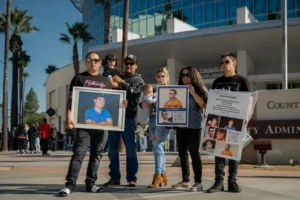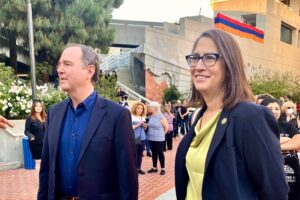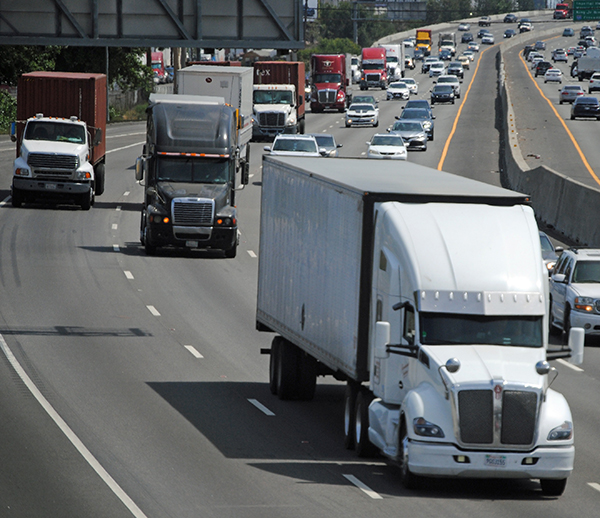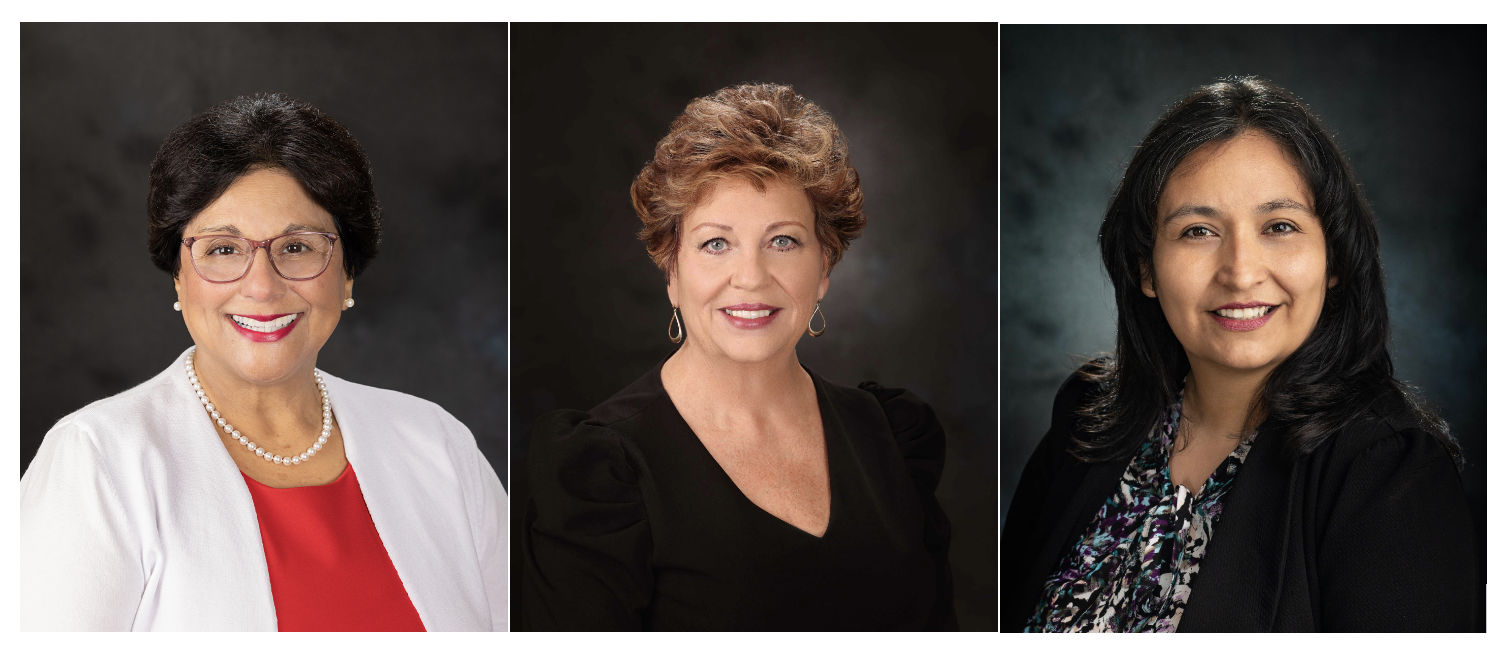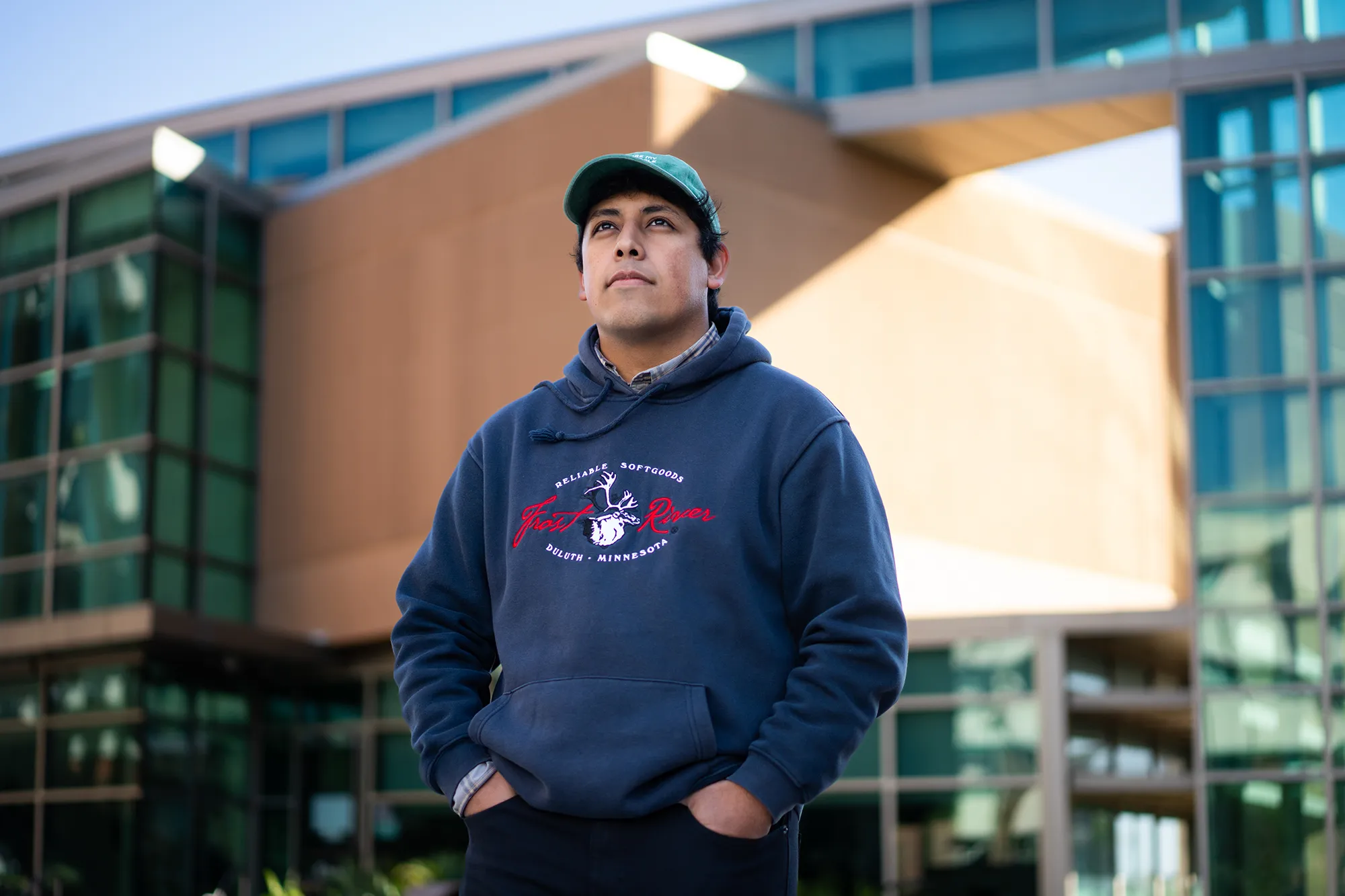By Alfredo Santana
Contributing Writer
LOS ANGELES — A rift among Long Beach (710) Freeway task force members surfaced as support floundered for proposed language to add goods movement along the corridor to the vision statement crafted by a committee composed of local residents.
The rift centers on the lack of acknowledgment of freight transported using big or small trucks from the twin ports of Los Angeles and Long Beach along the 19-mile stretch connecting the Long Beach Freeway with the Pomona (60) Freeway in East Los Angeles.
The vision statement is an outline that includes key concepts to rid the area of carbon pollution by using new technologies to ideally reach zero emissions while creating sustainable communities with improved environment and making safer transportation of people.
An informal tally conducted at the task force’s ninth meeting June 13 resulted in 14 members in favor of the original version omitting the words “goods movement,” eight in favor of adding the term, and five who either had concerns with its writing or refused to back either.
As it stands, the current draft reads that the freeway should become “an equitable, multimodal, shared … transportation system that fosters clean air (zero emissions), healthy and sustainable communities and economic empowerment, and provides safe, quality mobility options for all the communities and residents.”
The 710 South Corridor charter indicates that for an official version to pass, 60% of the 31 task force members, or 19 people, needed to vote in favor of the proposal.
Kerry Cartwright, director of goods movement for the Port of Los Angeles, pushed for the amendment, and reminded the task force that a goal for the investment plan is to improve transportation along the corridor and ignoring movement of goods would not resolve pollution or uplift communities.
Cartwright’s attempt to add goods into the language without resending it to the Community Leadership Committee unleashed criticism from other task force members and from public participants who derided the change.
“It’s very important that we include our folks and the voices that are in the front lines,” said task force member Laura Cortez with the East Yard Communities for Environmental Justice. “To change the words of the CLC is completely disrespectful. If any changes move forward, it should move back to the CLC. Please don’t be disrespectful of the community.”
Task force member Fernando Gaytan, a senior attorney with Earthjustice, said that significant changes would not be reached if the CLC work is pushed aside.
“Solutions will not go along in the 21st century with a vision of the 20th century. I will vote for keeping the [CLC] sentence of the pledge without keeping freight,” Gaytan said.
The initial changes were so drastic that the new version generated pushback from other task force members, saying the current statement is a powerful guide aiming to shift previous wrongs from the past.
Nonetheless, support for adding goods movement to the final draft was strong, and task force members called for reaching an eventual compromise.
“The whole purpose of goods movement is to supply what people need,” said Long Beach Harbor Commissioner Sharon Weissman. “I am absolutely in support of health and environment along the 710 freeway, but to include goods does not mean they are more important than people.”
She suggested that trucked cargo should only be on the streets “the first and last miles” of the commute.
Michael Leue, chief executive officer of the Alameda Corridor Transportation Authority, the agency in charge of rail transportation of goods serving the Ports of Los Angeles and Long Beach, said casting goods movement aside will not bring the investment to clamp down on pollution or improve equity and the economy of local residents.
“I just want to make sure we are going to address goods movement,” Leue said.
Cartwright said he did not mean to disrespect the communities impacted by the traffic and emissions from the busy freeway, but pushed for a path to recognize the regional and national importance of goods movement.
“I’m not sure why there’s so much reticence using goods movement there,” Cartwright said.
Weissman acknowledged the task force was assembled to consider the Community Leadership Committee issues, and underscored that honest disagreement is not disrespectful.
“I really want us to talk about this process, because ultimately this is the process,” she said.
Michael Cano, deputy executive officer of goods movement and state policy programming with the Metropolitan Transportation Authority, floated the notion that the coordinating committee, composed of task force and Community Leadership Committee members, would have to step in to negotiate a version that may suit both groups and be ready for vote on July 11.
A second option would be to create an ad hoc committee to discuss the issue and gather material for the task force.
“This is a very important conversation, for both the outcome and its process.” Cano said. “The structure is to bring together all the voices and come up with a statement that serves all communities.”
He called on task force members to think about long-time residents’ objectives to clean up drastic contamination and lift the region’s quality of life.
“What I’m getting here is that we don’t want to do improvements to the freeway for big rigs going to Iowa,” Cano said. “So I encourage you to dig deeper and find common ground with the community.”
Lena Kent, general director of public affairs with BNSF Railway, said it is not realistic to omit goods movement from the vision equation.
“The big elephant in the room is freight,” Kent said. “If it does not come on the 710, it will migrate to our communities. We have to have a healthy balance. To me, it’s important to have a clean community, but I also know it’s way important to have a healthy economy.”
She pushed for a statement that demystifies zero emissions, and called for less airborne pollutants, because it may mean that trucks unable to meet the standard would be banned from using the freeway.
Cano concluded that the discussion shows the task force has more work to do, and that the goal is “never have a split vote.”
In addition, the task force overwhelmingly approved a sustainability statement for corridor works that commit to better social, health and economic conditions.
The vote was 30-1 on its favor.
The version reads: “A commitment to sustainability is to satisfy and improve basic social, health and economic needs/conditions, both present and future, and the responsible use and stewardship of the environment, all while improving the well-being of the environment on which life depends.”




